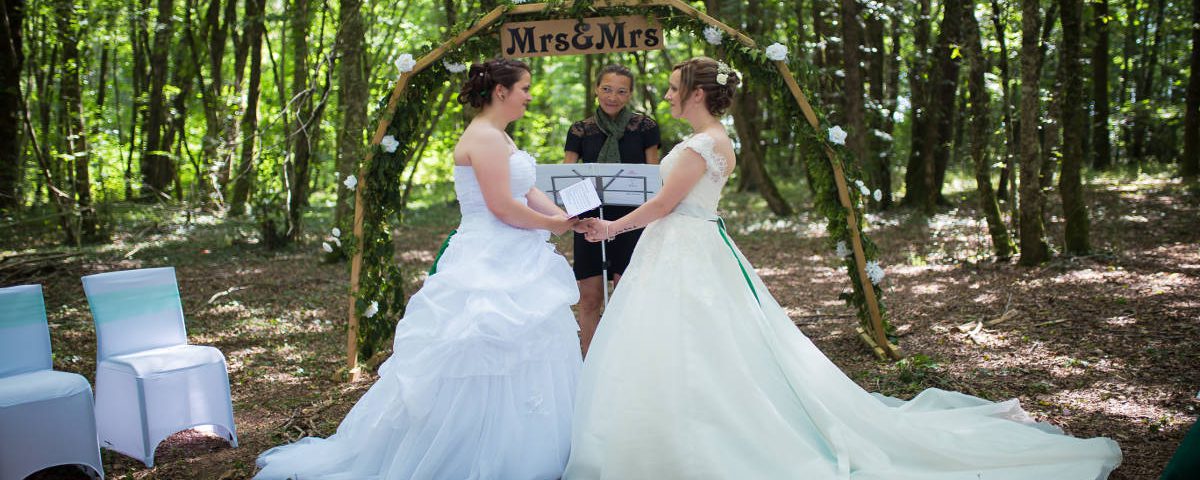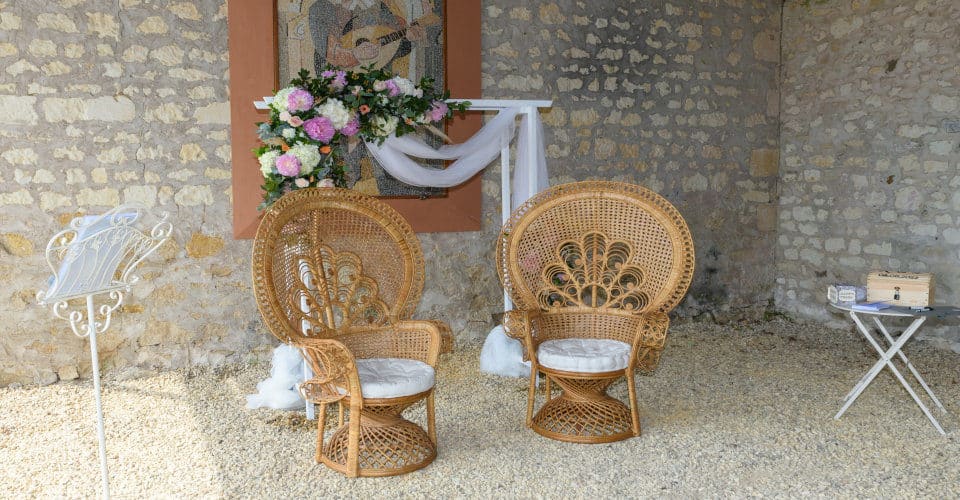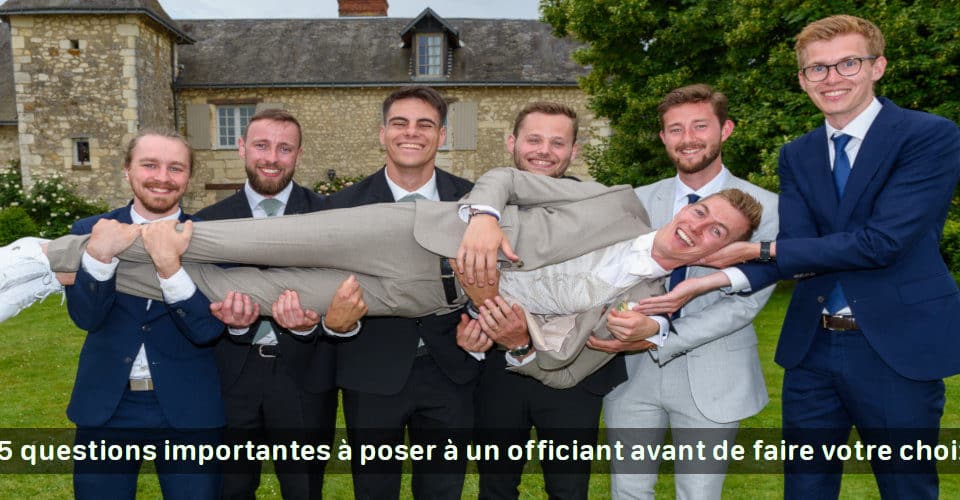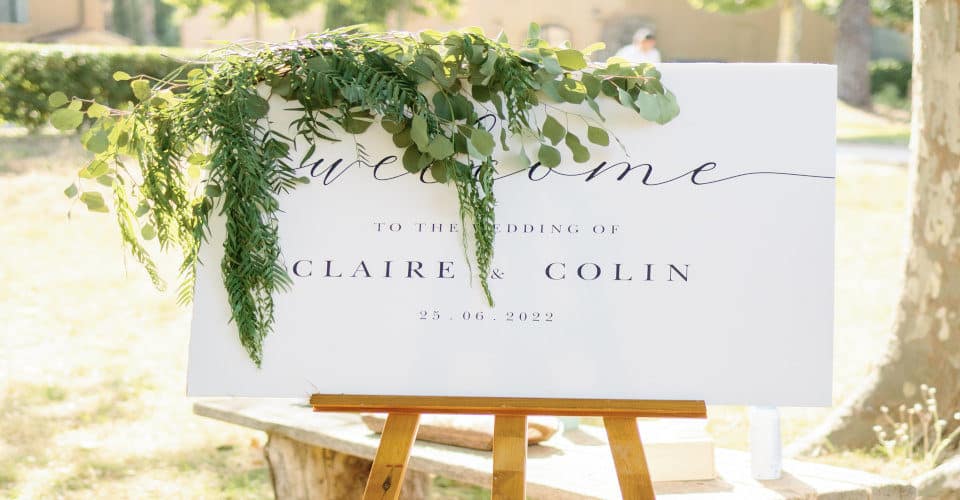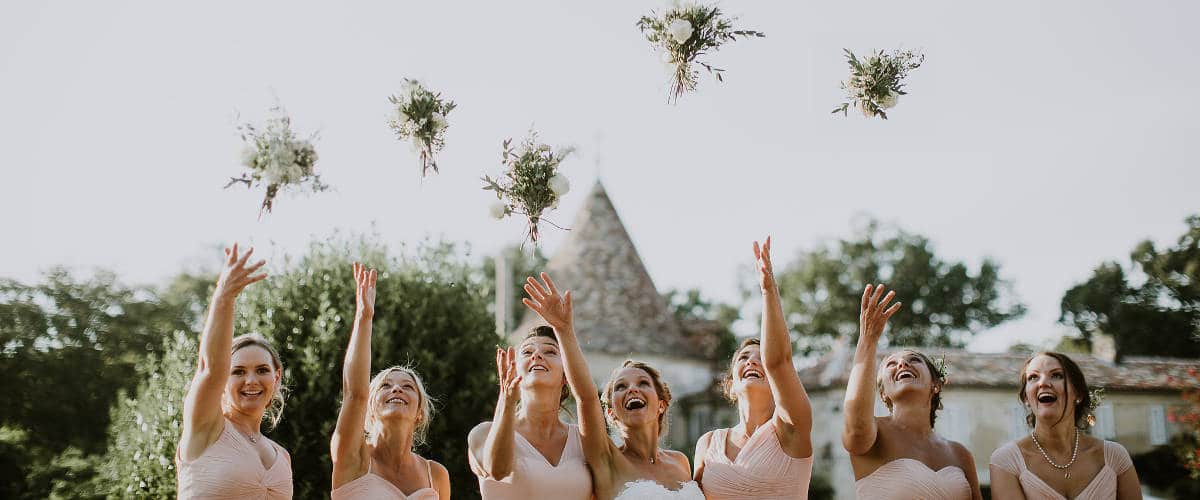
What is a Secular Ceremony?
September 29, 2016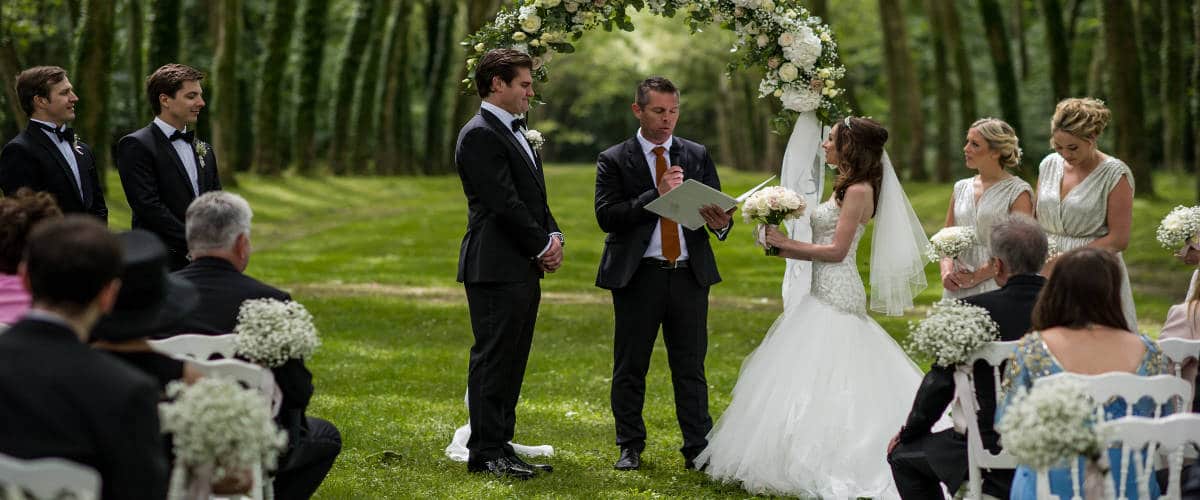
Richard, Ceremony Officiant since 2016
October 9, 2016Towards a revolution in wedding traditions?
Since the creation of Unique Ceremonies in 2010, things have evolved a lot. At that time, interest in the secular ceremony came almost exclusively from foreign clients wishing to get married symbolically in France. Then, little by little, French customers became interested in this concept, which is still so little known in our country.
The first interested couples were those whose circumstances prohibited them from accessing the traditional religious ceremony, such as divorced people and same-sex couples. It was then adopted by civil partnership couples who had no other alternative to celebrate their commitment in a less administrative and more romantic and personal way.
Today, the secular ceremony is a trend that has become widespread and appeals to a wider range of couples because they are frustrated by the impersonal civil union often celebrated in a hurry, especially in big cities.
The other reason for the growing success of the secular ceremony is the evolution of behavior observed over the last 40 years: Couples have lived together for several years before formalizing their union, have already bought a home together, have already founded a family. Unlike previous generations, couples today wait until they have acquired a certain financial stability before getting married and therefore do so later. For example, according to INSEE, women married on average at the age of 24.6 in 1980 while this age was 35 in 2014.
The secular ceremony offers all these couples the flexibility they are looking for, not only regarding the location of the ceremony which can be a garden, a meadow, a barn, a beach, etc. but also with regard to its form and content.
During my first years as an officiant, I expected couples to take advantage of this flexibility and the personalization offered to express their personalities, think outside the box and free themselves from traditions, codes and constraints imposed by society.
However, many opt for the central aisle, the rows of chairs, the solemn entrance of the bride preceded by her bridesmaids, the exchange of consents and wedding rings. Others even borrow the candle ritual from religious ceremonies.
Some lovers in fact consider the secular ceremony as a means of expressing their individuality and decide to integrate a dancing entrance, by bike or in a group or accompanied by a dog dressed as a bridesmaid, an original ritual such as such as the cocktail, the selfie or the Facebook like, but once again, this is not the majority of them.
The secular ceremony is therefore not, as I initially thought, the opportunity for couples to completely revolutionize the codes of religious marriage and those of the institution but rather to adapt and create it, with the help of their officiant, a moment all their own which takes place in a less rigid and more relaxed atmosphere.
Unlike the civil ceremony which is only seen as an administrative process, the secular ceremony serves as a real ceremony, a celebration and has an enormous symbolic dimension in the eyes of couples, which is why few of them really dare to deviate from traditions, certainly for fear that their ceremony will lose credibility in the eyes of loved ones.
The role of a good officiant is therefore to respect this wish to comply with certain ancestral traditions rather than encouraging them to deviate from them at all costs at the risk of lacking authenticity. His role is to compose a ceremony that faithfully reflects the couple's history and their values, however traditional they may be.
If you would like additional information on our celebrations of secular ceremonies in France, do not hesitate to contact us



